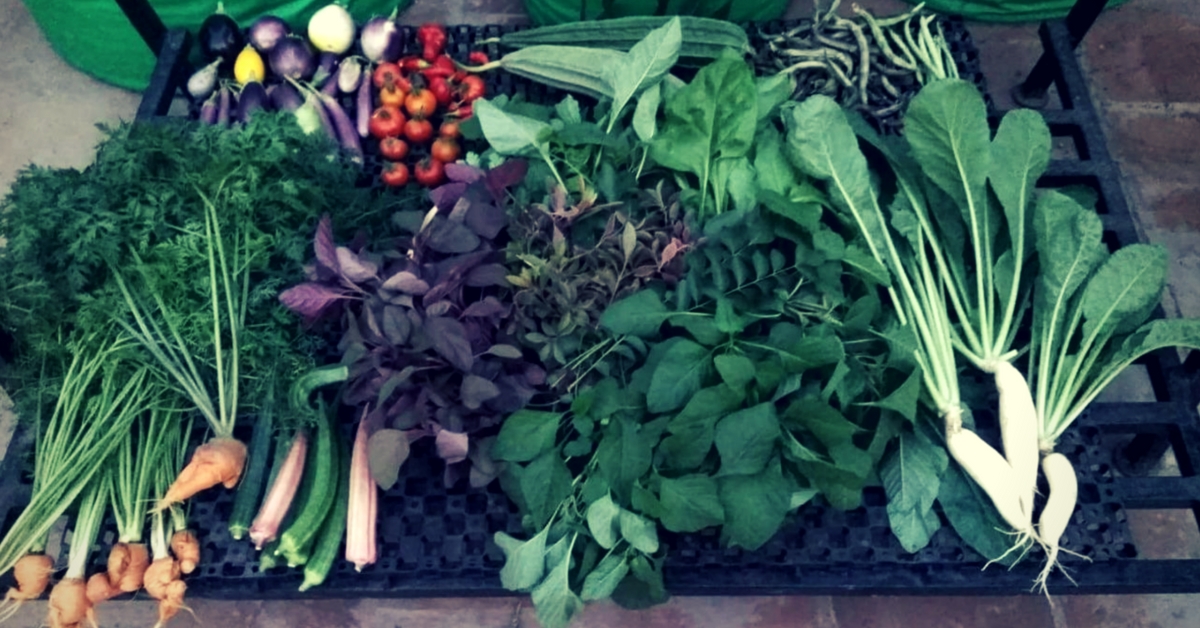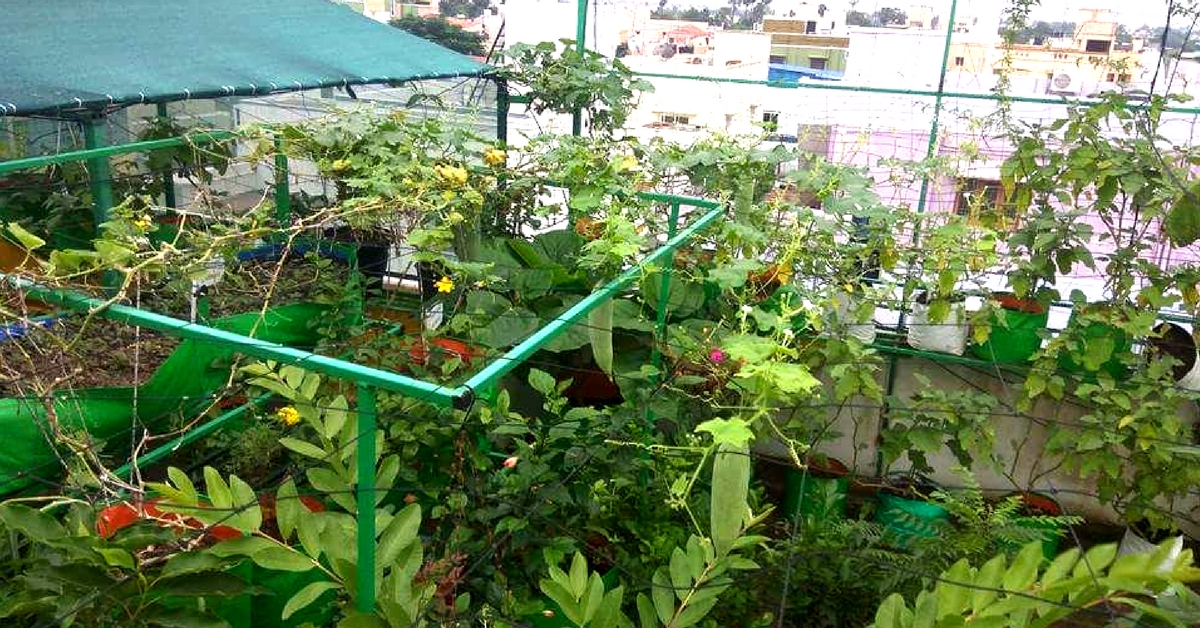Organic and terrace farming is making waves in India because people are gradually understanding the advantages of growing and consuming their own food.
Through this article, you will get to know more about two friends, Balasubramaniam and Natarajan, and their 15-year-old Chennai-based terrace garden—Indra Terrace Garden—which has become a benchmark for efficient and effective terrace gardening in Chennai.

Both the friends have an avid interest in gardening and farming, and were attracted to the concept of growing and nurturing plants.
Many years ago, the duo decided to grow their own food, as they didn’t find the quality of the vegetables available in the market satisfactory. They wanted to begin terrace gardening, to eat better quality food and to spread awareness regarding the terrace garden concept.
Thus, the seed for the Indra Terrace Garden idea was sown in their minds. Slowly but surely, the two friends went about realising their dream.
When they started around a decade ago, they grew lots of flowers and small essential vegetables like chillies and leafy greens. However, the majority of the output was inedible—as they were flowers. The two friends decided to branch out into other varieties of fruits and vegetables.
They then turned to growing tomatoes, which gave them a good output. They realised that if they could grow tomatoes, they could grow other vegetables as well.
That is when the research started. In the absence of the internet, information was assimilated from books and certain agricultural magazines in Tamil Nadu. The two friends devoured all the information they could, about the best practices of terrace gardening.
Taking care of a terrace garden requires a considerable amount of effort. The plants need to be watered, manured, and a million other tiny details need to be looked into. Balasubramaniam explains how terrace gardening is a procedure, one not to be taken lightly.
The friends also have a shop, where they sell all kinds of material pertaining to terrace gardening. There is cow-dung (of different varieties), various mixes, grow-bags, biofertilizers, neem oil, neem cake, cow-dung cake and other miscellaneous items that are very useful for both amateurs and seasoned terrace gardeners.
Everything is taken care of naturally, in the Indra Terrace Garden, even the control of pests. The flowers in the garden attract butterflies and other pollinating agents, and special herbs grown prevent harmful insects or bacteria from attacking the plants.
The families of the duo also pitch in when it comes to taking care of the garden. Natrajan is also trying to inculcate the spirit of cultivation, in his children as well. In his opinion, it is critical for the younger generation to drift towards farming.
Balasubramaniam sees a lot of potential in terrace gardening, especially in Chennai. He pertinently points out that his street has 15 houses. Each house has a built-up area of 600-1000 square feet, so if each house practices terrace gardening, you have around 2500 square feet of terrace gardens in each locality.
Rounding off, the co-founder of Indra Terrace Gardens points out that the government made rainwater harvesting and waste-separation compulsory. Both these steps have had favourable measures. If the government made it mandatory for each household to carry out terrace cultivation, it would really pay off for the residents themselves. Balasubramaniam also points out that an abundance of greenery brings the urban temperature down by 1 or 2 degrees, and also reduces pollution.
The two friends want to propagate and popularise the terrace garden function in Tamil Nadu. According to them, it is a sustainable method of living, when you grow what you eat.
Natarajan, speaking of the virtues of terrace gardening, also mentions that the produce you grow on your own is devoid of any pesticides and unnecessary contaminants.
Gardening is not an easy activity. You need to have immense patience and should be prepared to handle any emergency. Natarajan however, urges people not to get discouraged by failure. Chennai has a challenging climate, but Natarajan is optimistic, saying that every kind of plant can be grown here. The plants may be a little smaller than usual, but most importantly, they will be completely natural.
You may also like: 5 Secrets To Creating The Most Amazing Terrace Garden – From The Father Of Terrace Gardening Himself!
So, if you want to eat healthy and avoid the pesticide-filled vegetables and fruits available in markets, set up a terrace garden, and reap the benefits!
Like this story? Or have something to share? Write to us: contact@thebetterindia.com, or connect with us on Facebook and Twitter.
NEW: Click here to get positive news on WhatsApp!
If you found our stories insightful, informative, or even just enjoyable, we invite you to consider making a voluntary payment to support the work we do at The Better India. Your contribution helps us continue producing quality content that educates, inspires, and drives positive change.
Choose one of the payment options below for your contribution-
By paying for the stories you value, you directly contribute to sustaining our efforts focused on making a difference in the world. Together, let's ensure that impactful stories continue to be told and shared, enriching lives and communities alike.
Thank you for your support. Here are some frequently asked questions you might find helpful to know why you are contributing?

